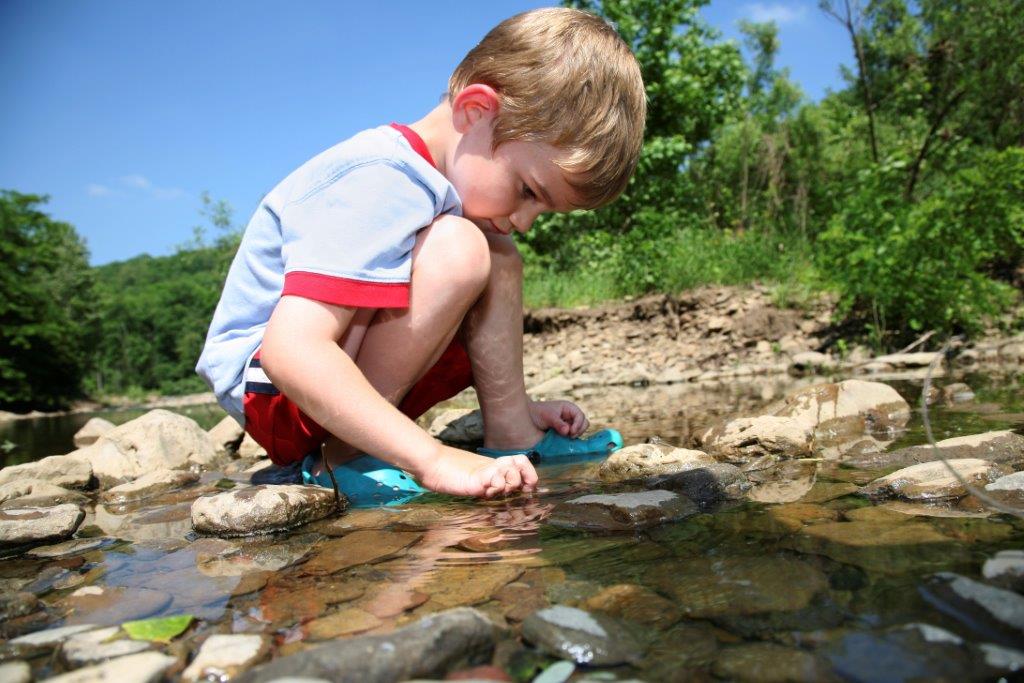
A report (known as the Blagrave Report) put together by a group of Outdoor Education stakeholders suggests that education programmes vary in their effectiveness so greatly that there has never been a comprehensive review into what is measured as their outcomes and to what level.
The report's knowledgeable steering group included; Andy Robinson (Chief Executive, the Institute for Outdoor Learning), Jo Wells (Director, Blagrave Trust), Lucy Maynard (Head of Research, Brathay), Mike King (Releasing Potential and trustee of the Institute for Outdoor Learning), Justin Dillon (Bristol University and trustee of the Council for Learning Outside the Classroom), Emma Ferris (Head of Impact Evaluation, Outward Bound), and Lyndsey Nassim (Head of Sales & Marketing, Scouts).
The report came about because the Blagrave Trust, whose areas of interest include outdoor learning, wanted to understand what is known about the effectiveness of the various types of outdoor learning programmes. In partnership with the Institute of Outdoor Learning, the Blagrave Trust commissioned Giving Evidence and The Evidence for Policy and Practice Information and Co-ordinating Centre (EPPI-Centre) at UCL Institute of Education to produce a systematic review of the existing literature about outdoor learning.
The aims of the report were to:
1. Categorise the various outdoor learning activities being run in the UK, in order to provide a coherent sense of the sector as a whole;
2. Identify the various outcomes which organisations running outdoor learning activities are measuring, i.e., identify the outcomes which providers seem to be seeking to achieve; and
3. Assess the designs of individual evaluations (while aware that study designs vary in their openness to bias and hence inaccuracy) and the standard of evidence generally available for different types of outdoor learning.
Some of the report's key conclusions were:
Few studies have been made into the value of Outdoor Learning outside the 11-14 age group and Adventurous Activities
The most common study topics are: adventure or residential activity and 11-14 year olds. This means there are very few studies on (and hence little insight about) all the other age groups, popular activities such as Scouts or Ramblers, or activities for people who are not in employment, education or training (NEETs), have disabilities or are post-trauma to name but many.
Huge drop in Biology field trips
A survey of biology and geography teachers visiting one of 17 Field Study Centres (FSCs) revealed geography having ten times the amount of fieldwork at Key Stage 3/4 as biology, and a decline in the proportion of biology groups using the FSCs. The factors most commonly identified by biology teachers were curriculum pressure, cost of courses, timetabling problems and a reduction in fieldwork opportunities in the curriculum.
A survey of how often south London secondary schools use local green spaces and parks for teaching science found that fewer than half the schools reported using fieldwork in teaching science; and only one school provided a residential science field trip for either Key Stage 3 or 4. Frequent reasons given for field trips having a low priority were time, access to local sites, limitations of the National Curriculum, funding and safety.
Outcomes bear little relation to Employability
There seems surprisingly little linkage between the outcomes measured by the studies and the agenda of ‘customers’ and funders. The outcomes measured are mainly around ‘character development-type’ outcomes (communication skills, teamwork, self-confidence etc. Very few studies addressed interventions with strong links to core curriculum subjects.
There was only one primary study of educational outcomes at Key Stage 1 (5-7 year olds), few of educational outcomes at Key Stages 2, 3 and 4, and none at or beyond Key Stage 5 (sixth form).
There is also a mismatch with the interests of employers: ‘employability’ is only measured in relation to offenders but not young people generally. Looking internationally, only six of the 15 systematic reviews across the globe looked at educational attainment, and only one addressed employability.
Safety is not considered an outcome fo Outdoor Learning, yet is integral to its success
Safety is little covered in the systematic reviews and was not measured as an outcome in any of the primary studies. Safety is obviously a major issue in outdoor learning since it can be dangerous: few social interventions can result in broken limbs or fatalities. Even if safety isn’t the primary focus of a study, data could be gathered about safety: this is often how patient safety data and insights are gathered in medical research.
Click HERE to read the full Blagrave Report. (link is external)



